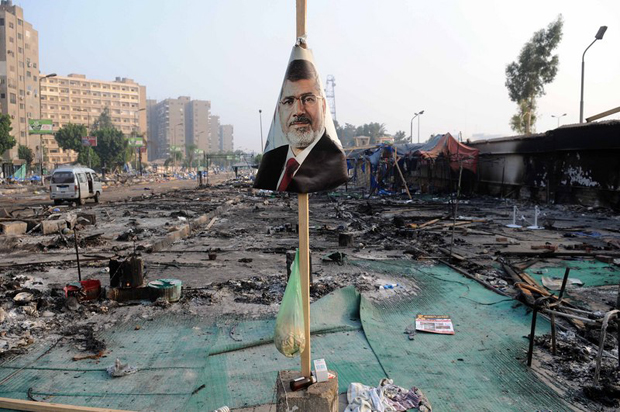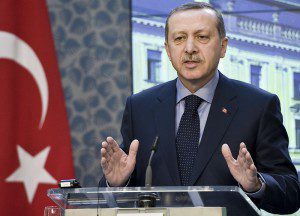5 Feb 2014 | About Index, Campaigns, Press Releases
After two years at the helm of Index on Censorship, Chief Executive Kirsty Hughes will be leaving the leading international freedom of expression organisation in mid-April to pursue new projects and writing in the international and European politics arena.
Hughes joined Index in April 2012 taking its international editorial and advocacy strategy to new audiences and leading Index in its work on international digital freedom, including Index’s opposition to mass surveillance as revealed by the Snowden revelations, reinforcing its work in authoritarian and transition regimes around the world, and introducing a new focus on the question of access to freedom of expression. Hughes has been a key commentator and evangelist for Index, raising the organisation’s profile in the United Kingdom, India, Brazil, the EU and the United States.
Index on Censorship is currently seeking a leading free speech defender as our new CEO. Full details on the role can be found here.
15 Aug 2013 | Comment, Egypt, News and features

Egypt faced a new phase of uncertainty after the bloodiest day since its Arab Spring began, with nearly 300 people reported killed and thousands injured as police smashed two protest camps of supporters of the deposed Islamist president. (Photo: Nameer Galal / Demotix)
As the numbers steadily mount of those killed by the Egyptian military and police in yesterday’s attacks on Muslim Brotherhood camps, the prospects for Egypt’s ‘Arab spring’ are looking bleak.
The violent destruction of the two camps, and the indiscriminate shootings, beatings and arrests of supporters of ousted President Mohamed Morsi, and of journalists, was clearly planned. The country’s military rulers have taken little time to demonstrate their contempt for the many Egyptians who wrongly thought the army could usher in a more pluralist rights-respecting democracy. The hopes of those who saw July’s coup as somehow too positive to warrant such a label now lie in tatters, with Mohamed ElBaradei’s inevitable resignation just one small illustration of that.
Is this simply a return to square one – back to a Mubarak-style, military-run Egypt? At one level surely it is, with army head General al-Sisi showing neither shame nor compunction in such a murderous installation of the new state of emergency.
But while the similarities to the Mubarak era are clear, this is a new and different Egypt. The millions who demonstrated in Tahrir Square in 2011, and again this June in protest at President Morsi’s authoritarian approach to government, are not simply going to accede to corrupt and vicious military rule once more. And the brutal violence against the Muslim Brotherhood protesters is most likely to beget more violence rather than the destruction of the Brotherhood that the army appears intent on.
With the violent face of the new Egyptian regime now clearly on display to the whole world, with no respect for rights of protesters, or media, or ordinary citizens, the international response has been shamefully muted. The EU’s foreign policy supremo, Cathy Ashton, called for the military to exercise the “utmost restraint” and for an end to the state of emergency “as soon as possible, to allow the resumption of normal life”. Meanwhile Samantha Power, Obama’s UN ambassador, tweeted weakly that the “forcible removal” of protesters was “a major step backward”.
Earlier in the week, the US and EU failed in their mediation attempts to stop the attacks on the camps, that all could see were coming. The key question now should be whether they are prepared to go for tougher diplomacy in an attempt to exert some leverage on the disastrous social and political dynamics that have now been unleashed so far. This would have to revolve around suspension of the $1.3 billion of military aid the US gives Egypt each year.
Obama’s first statement of condemnation finally came today but with no hint of the sort of leadership or signal that suspension of aid would send. Obama’s cancellation of military exercises next month will not worry Egypt’s generals much. And his uplifting speech on a new beginning at Cairo University in 2009 – and his Nobel Prize that year – are surely now lost in the dust and ashes of the aftermath of Wednesday’s violence and the US’s refusal to use the tools of influence it has. For now, more urgent and serious statements are coming rather from the UN.
Whether Egypt’s citizens who demonstrated for an end to military rule, and for a genuine pluralist democracy can regroup enough to have the influence to stop the downward spiral looks doubtful. But the spirit of Tahrir Square did not die yesterday. And if Egypt is now in winter, then spring at some point must come again. But for now the winter looks to be just beginning.
This article was originally published on 15 Aug 2013 at indexoncensorship.org. Index on Censorship: The voice of free expression.
7 Aug 2013 | Egypt, News and features, Politics and Society, Religion and Culture, Turkey, Turkey Statements

Turkish Prime Minister Recep Tayyip Erdogan (Photo: Philip Janek / Demotix)
While Turkey this week jailed its former Chief of Staff, General Ilker Basbug, in Egypt, General Sisi’s popularity is still riding high following the army’s ousting of President Morsi.
Yet the mass prosecutions and heavy sentencing under the so-called Ergenekon case in Turkey do not simply show a welcome assertion of civilian over military power. Nor does the military’s role in Egypt constitute what US secretary of state John Kerry rather remarkably referred to a week ago as “restoring democracy” – contradicted this week by John McCain for the first time calling the coup a coup.
Both Turkey and Egypt have failed so far to find a way to reconcile democracy, Islam, and the role of the military. And while a big segment of the Egyptian population is now rashly putting its faith in its army to lead it to a fully functioning pluralist democracy, Turkey’s recent past shows precisely why that might result in modernisation but not democracy.
Yet the recent protests in both countries also show that majoritarian democracy, without respect for the rule of law, human rights, and media freedom, will not lead to a fair, open and stable democratic system either. Where Turkey was once seen as the poster boy for democracy in a Muslim majority country, that picture is now truly tarnished. But the route via military power will never make a good alternative model.
The Military and Kemalism
Turkey for decades followed a path – led by its military and various Kemalist and secularist supporters – of modernisation and westernisation, a sort of quasi-democracy with the military there as a ‘guard rail’ against Islamists and other ‘enemies’ of the state. This army-protected approach did little to propel democracy though it led to some substantial economic and social modernisation especially in the west of Turkey (though its neglect of the smaller businesses of central Anatolia was one part of Erdogan’s remarkable success when he swept to power in 2002).
But, without proper political accountability or a genuinely independent judiciary and free media, corruption and the ‘deep state’ grew and prospered in Turkey tying together a range of unlikely bedfellows, while labelling as dangerous enemies a range of people from Islamists to Kurds, leftists and Alevis with civil society, academics and independent journalists seen as at best deeply suspicious too.
Turkey’s last military coup was in 1980 but the so-called ‘soft coup’ of 1997 pushed the Justice and Development Party (AKP)’s predecessor out of power. Frustrated and oppressed by military-backed politics, when Erdogan’s Islamist-leaning AKP came into power in 2002, many liberals welcomed it as heralding and introducing major steps forward in starting to create a genuinely pluralist democracy, one that would respect minorities, seriously tackle Turkey’s appalling record of torture, and open up the prospect of finally replacing the 1982 military-imposed constitution.
The nationalist-secularist deep state was less impressed fearing underlying Islamist intentions. But attempts at an ‘e-coup’ in 2007 (through military expressed disapproval of the Erdogan government) to the attempted banning of the AKP in the ‘judicial coup’ of the following year failed. And so over his eleven years in power, Erdogan has asserted increasing civilian control over the military.
But the over-reach in the Ergenekon trials, with a wide range of observers criticising the politicisation of the prosecution, lack of due process, and the severity of the sentencing, some labelling it a witch hunt, suggest a process more of political revenge or what commentator Cengiz Candar labels “civilian authoritarianism” rather than a democratic breakthrough. With only 21 acquitted from 275 defendants, in a very wide set of charges around terrorism and coup plots, the Ergenekon sentences mark a moment of deepening political division in Turkey. The draconian nature of the sentences against several journalists and writers have been severely criticised by Dunja Mijatovic, the OSCE’s freedom of the media representative and condemned by the Association of European Journalists.
As this more authoritarian Turkish democracy has developed over the last five years, Turkey’s media has become ever less independent, ever more crushed or complicit – with more journalists in jail than in China and Iran, and sacking of columnists and editors rife even before the surge in dismissals that followed the recent Gezi Park protests and the Ergenekon imprisonments.
Nor has Erdogan stopped at media pressure and control. Turkey has a weak record on internet freedom too. The European Court of Human Rights ruled in May this year that Turkey’s blanket blocking of sites violated freedom of expression – a ruling that will doubtless not have impressed Erdogan and his ministers who were so outraged by free speech on Twitter and other social media during the recent protests.
But it would be hard to argue that Turkey would be better off today if it reverted to its old, failed ways of military coups and a corrupt, elitist deep state. Turkey needs a truly independent, impartial and honest judiciary, a free, strong media to hold politicians to account, a free and open internet. And it also needs healthy dynamic opposition parties too. Yet the recent mass protests showed only too clearly that the stumbling Republican People’s Party (CHP) has still failed to find a convincing modern democratic voice, even as Erdogan has shifted from progressive to more authoritarian ways. The masses of protesters – looking for a more genuine, pluralist democracy – still lack serious political parties to work through.
It is a vicious circle – as the lack of dynamic opposition parties interacts with the ever crumbling, no longer independent media, government over-reach and the failure to introduce a modern constitution respecting human rights, free speech, and an independent judiciary.
Any Lessons for Egypt?
It is this sort of majoritarianism democracy, but worse, that Egypt has now supplanted with its own protest-backed military coup. Morsi’s government had lurched into an authoritarianism that went a long way beyond where Erdogan has taken Turkey. Where Erdogan failed to introduce a new constitution, Morsi rammed one through that undermined any hopes of establishing a genuine pluralist democracy with full respect for human rights for all.
But the omens for Egypt’s coup as a pro-democracy move are not good. The military have moved rapidly to restore in full public sight various secret police groups. Muslim Brotherhood politicians, including Morsi, are in jail, protesters have been shot and killed – often in the head or chest in what many have called a massacre. And media are being watched, with those sympathetic to the Muslim Brotherhood closed down or censored. This week 75 judges were questioned about their political sympathies for the Brotherhood – a step the Turkish deep state would have only applauded and concurred with. The so-called Third Square movement, attempting to create support for a new democratic path that supports neither military nor Morsi, is so far small compared to the other two camps.
The US, EU and Arab diplomats are now stepping in urgently – attempting to stop a lurch into indefinite and widespread violence, and to stop further killings as the Egyptian authorities threaten to close down the two Brotherhood protest camps in Cairo. But today disturbingly the interim presidency said these efforts have failed – more violence may well loom.
The same challenge
In the end both Turkey and Egypt face the same challenge: how to get to a fully functioning democracy, with rights for all not just the majority. It cannot be done through military coups, violence and military-backed modernisation. It cannot be done through street protests alone. And where Erdogan’s AKP in 2002 showed a possible way ahead, that model now lies in tatters as Erdogan has shed his progressive mantle.
Yet the tools and the vital steps are not a mystery; they include a free and independent media, full respect for human rights, an independent judiciary, and a vibrant set of political parties. The political challenge is how to create and defend those tools; that is the big task for progressive civil society and for genuinely democratic politicians in both countries – and for their supporters in other countries.
29 Jul 2013 | Comment, Digital Freedom, News and features, United Kingdom, United States

(Illustration: Shutterstock)
In the 1970s, mass surveillance was seen as especially a Cold War thing – what the Soviet bloc did to its own citizens, while also spying on the West. The West ‘only’ targeted a few Soviet spies and perhaps some left-wingers too — but mainly focusing on the Soviet Union and its satellites. From phone taps to opening letters, to directly observing someone, mass population surveillance was certainly undertaken by the Stasi and others, with their armies of informers. But mass snooping was not seen as a domestic concern or risk at home in the West.
Today and every day, we leave our digital footprints all over the place. Our digital trail is collected by telcos, web hosts, social media and others. And as the Snowden/NSA revelations have shown, our data is especially hoovered up from all these sources and more by the US, UK and other governments – covering millions of people around the world.
Prism, Tempora and other programmes indicate a major intelligence dragnet that surely constitutes mass surveillance, with little legal justification, and one that invades and undermines our right to privacy and our freedom of speech – since if everything we write, say and do is recorded and collected then how we behave as individuals and social animals surely changes.
Not so say some. Mass data retention isn’t snooping and surveillance until you analyse it and use it – and then there are various laws that allow targeting of suspicious individuals or groups. After all, if companies like Google, Facebook and Yahoo accumulate masses of our data, and analyse it for advertising purposes, then why should we worry that governments hoover up our data too?
This is a slippery argument and worth unpacking. If a government and its intelligence services want to spy on their own or another population, there is very little transparency and accountability as to how they do that, or what the legal justification, if any, is – and as the underwater cable taps by GCHQ indicate, often with very little need to approach the web hosts or anyone else to ask permission to intercept data.
Mass surveillance needs various elements to work for those carrying it out. You need to collect the data, analyse it according to your interests and needs, and then act on it in some way. For sure the Stasi, like authoritarian regimes and actors today, also understood well that even the act of collection could be, and was intended to be, chilling and fear-inducing.
But what of the US or British or French governments today? Is their collecting of data on all of us – around the world not just their own populations – just big data, to be used for targeted analysis? Or is it an inevitably chilling act, on the basis of which fishing expeditions are carried out, groups and individuals are identified on a large scale as potentially suspicious through the data analysis, and further monitoring and arrests, through to extraordinary rendition or drone attacks, may be the follow up.
The huge quantities of data collected on us in one programme – such as Tempora – can be analysed to build a multi-dimensional picture of our individual personal lives. And with little or no transparency as to who can access the data, or how the analysts are themselves monitored and regulated.
Mass data collection on all our digital communications challenges our rights to freedom of speech and privacy, and more broadly puts at risk our democracy – how can governments be held accountable, if journalists’ sources are no longer anonymous or campaign groups are fully monitored?
The huge overreach by the US and UK governments in deliberately collecting up our data around the world has set up the framework and data for mass surveillance. It’s a core part of monitoring us all. If we are to stop it, then we have to stop the reckless hoovering up of our data (to an extent that puts companies in the shade) and return to a more proportionate and targeted approach.
Mass data retention is a central element in mass surveillance. It needs to stop.



